第7章 CHAPTER I THE BIRTH OF THE TELEPHONE(6)
When Sunday afternoon arrived, Bell was at his little table, nervous, yet confident. But hour after hour went by, and the judges did not arrive.
The day was intensely hot, and they had many wonders to examine. There was the first electric light, and the first grain-binder, and the musical telegraph of Elisha Gray, and the marvellous exhibit of printing telegraphs shown by the Western Union Company. By the time they came to Bell's table, through a litter of school-desks and blackboards, the hour was seven o'clock, and every man in the party was hot, tired, and hungry. Several announced their intention of returning to their hotels. One took up a telephone receiver, looked at it blankly, and put it down again. He did not even place it to his ear.
Another judge made a slighting remark which raised a laugh at Bell's expense. Then a most marvellous thing happened--such an incident as would make a chapter in "The Arabian Nights Entertainments."Accompanied by his wife, the Empress Theresa, and by a bevy of courtiers, the Emperor of Brazil, Dom Pedro de Alcantara, walked into the room, advanced with both hands outstretched to the bewildered Bell, and exclaimed:
"Professor Bell, I am delighted to see you again." The judges at once forgot the heat and the fatigue and the hunger. Who was this young inventor, with the pale complexion and black eyes, that he should be the friend of Emperors? They did not know, and for the moment even Bell himself had forgotten, that Dom Pedro had once visited Bell's class of deaf-mutes at Boston University. He was especially interested in such humanitarian work, and had recently helped to organize the first Brazilian school for deaf-mutes at Rio de Janeiro. And so, with the tall, blond-bearded Dom Pedro in the centre, the assembled judges, and scientists--there were fully fifty in all--entered with unusual zest into the proceedings of this first telephone exhibition.
A wire had been strung from one end of the room to the other, and while Bell went to the transmitter, Dom Pedro took up the receiver and placed it to his ear. It was a moment of tense expectancy. No one knew clearly what was about to happen, when the Emperor, with a dramatic gesture, raised his head from the receiver and exclaimed with a look of utter amazement:
"MY GOD--IT TALKS!"
Next came to the receiver the oldest scientist in the group, the venerable Joseph Henry, whose encouragement to Bell had been so timely. He stopped to listen, and, as one of the bystanders afterwards said, no one could forget the look of awe that came into his face as he heard that iron disc talking with a human voice. "This," said he, "comes nearer to overthrowing the doctrine of the conservation of energy than anything Iever saw."
Then came Sir William Thomson, latterly known as Lord Kelvin. It was fitting that he should be there, for he was the foremost elec-trical scientist at that time in the world, and had been the engineer of the first Atlantic Cable.
He listened and learned what even he had not known before, that a solid metallic body could take up from the air all the countless varieties of vibrations produced by speech, and that these vibrations could be carried along a wire and reproduced exactly by a second metallic body. He nodded his head solemnly as he rose from the receiver. "It DOES speak," he said emphatically.
"It is the most wonderful thing I have seen in America."So, one after another, this notable company of men listened to the voice of the first telephone, and the more they knew of science, the less they were inclined to believe their ears. The wiser they were, the more they wondered. To Henry and Thomson, the masters of electrical magic, this instrument was as surprising as it was to the man in the street. And both were noble enough to admit frankly their astonishment in the reports which they made as judges, when they gave Bell a Certificate of Award. "Mr. Bell has achieved a result of transcendent scientific interest,"wrote Sir William Thomson. "I heard it speak distinctly several sentences. . . . I was astonished and delighted. . . . It is the greatest marvel hitherto achieved by the electric telegraph."Until nearly ten o'clock that night the judges talked and listened by turns at the telephone.
Then, next morning, they brought the apparatus to the judges' pavilion, where for the remainder of the summer it was mobbed by judges and scientists.
Sir William Thomson and his wife ran back and forth between the two ends of the wire like a pair of delighted children. And thus it happened that the crude little instrument that had been tossed into an out-of-the-way corner became the star of the Centennial. It had been given no more than eighteen words in the official catalogue, and here it was acclaimed as the wonder of wonders. It had been conceived in a cellar and born in a machine-shop; and now, of all the gifts that our young American Republic had received on its one-hundredth birthday, the telephone was honored as the rarest and most welcome of them all.